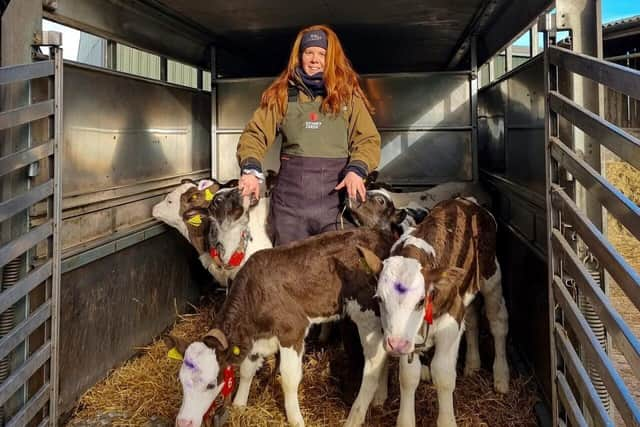Meet the Lancashire farmer who is growing climate friendly food
and live on Freeview channel 276
Amy Wilkinson, farms with her father on a tenanted farm in Halsall, Lancashire. They conservation graze on RSPB-owned salt marshes and said her approach to regenerative farming is as a journey that requires both time and dedication.
The farm which extends to more than 320 hectares has arable crops and around 650 beef cattle producing food for supermarkets. More recently Amy has started selling her beef to local butchers and restaurants, meaning she is helping to reduce food miles.
Advertisement
Hide AdAdvertisement
Hide AdSustainability is the main focus of the family farm with the majority of their arable crops being used to feed their cattle and the muck from the animals which is spread on the land helps to cut down their need to use synthetic fertiliser.


Amy works closely with the RSPB to manage stocking limits as well as grazing around endangered bird nesting sites.
A big focus for her is creating wildlife habitats and boosting biodiversity for birds and local wildlife with an abundance of bees, butterflies, worms and insects thriving on the marshes and farmland.
Ms Wilkinson said: “I think the general perception of cattle farmers and their impact on the environment isn’t right.
Advertisement
Hide AdAdvertisement
Hide Ad“With the right farming system in place, livestock farmers can make a really positive impact and I think we and, many other farmers out there, are showing that. There is some amazing work being done.”
Amy is passionate about helping the public to understand more about environmental farming and regularly host talks and engagements with MPs.
She added: “I really enjoy engaging with the public it’s really important that people understand where their food comes from and the environmental work we do as farmers.”
Amy believes there is also more wildlife present with the livestock rotating round the fields meaning the land is quiet for a sustained period, so animals and birds can live there undisturbed, while benefiting from the nutrient-rich environment they have left behind.
Advertisement
Hide AdAdvertisement
Hide AdShe is also planting hedgerows and trees including willow, black poplar and hazel – the willow does well in wet ground and helps to prevent flooding into nearby watercourses.
“We are trying to reduce our carbon footprint working side by side with the environment and improve efficiency.”
As global leaders discuss the future of the planet at COP28 in the United Arab Emirates, environmental farming systems, such as those being carried out in Lancashire and across the region are seeing a resurgence as British farmers strive to help the United Kingdom achieve its net zero target by 2050.